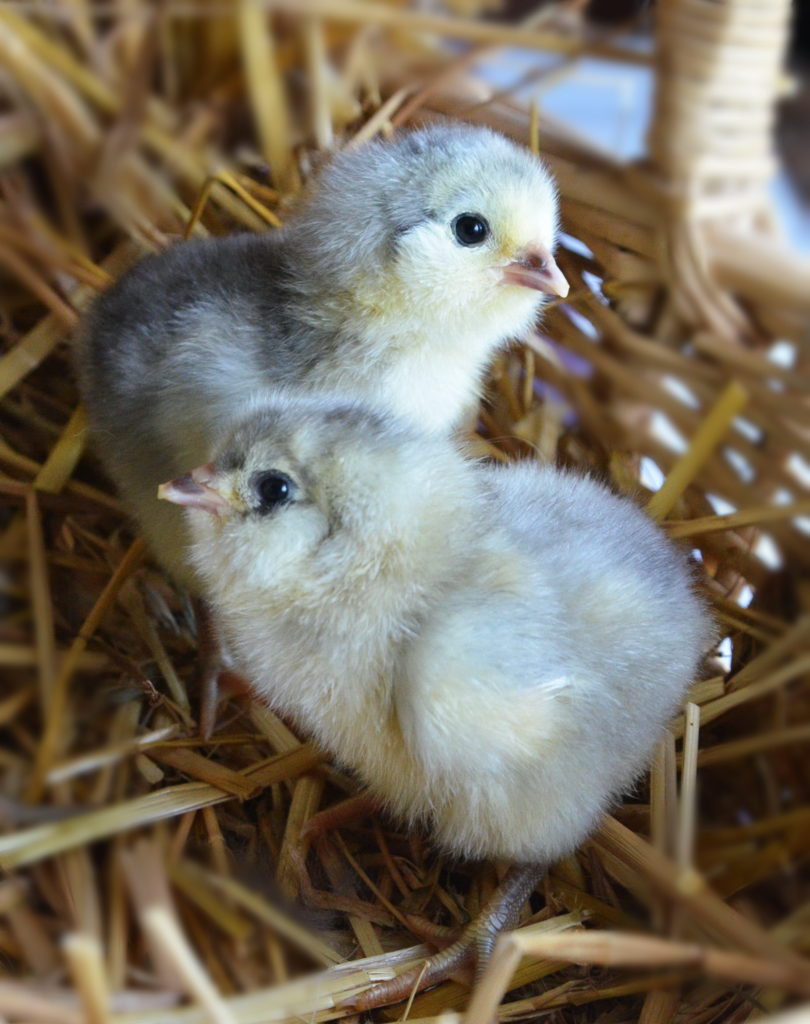
Newly hatched lavender ameraucana chicks.
Raising chicks for your flock is a rewarding experience. It is enjoyable watching them grow up from cute fuzzy little balls to bearers of fresh eggs. Raising chicks is a relatively simple undertaking; however, it can be challenging when young poultry becomes ill. Young poultry up 12 weeks of age is susceptible to one of the most life-threatening chick diseases, coccidiosis. It is an intestinal disease caused by microscopic coccidian protozoa parasite that can quickly multiply and overwhelm a chick to the brink of death. The condition is spread by direct contact or consumption of infected feces.
What is Coccidiosis?
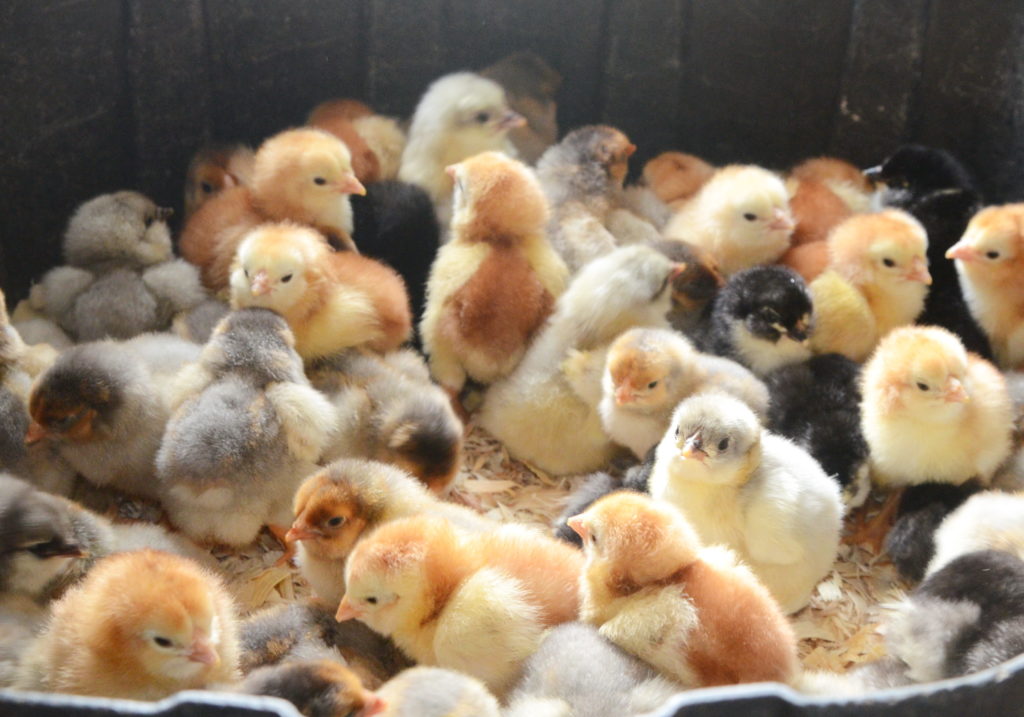
Chicks just out of the incubator, ready to be moved to the brooder.
Coccidiosis is a disease of young chicks that can have a high mortality rate. Symptoms of the disease include diarrhea, sometimes bloody, ruffled feathers, lethargy, poor appetite, and appearance is overall droopy, the disease can come on slowly or quickly. It is critical to observe your young flock daily, and if you see a single ill-looking chick contact your veterinarian immediately. This disease can spread rapidly, and it hits hard. Often people don’t realize they have a problem until they find a chick dead, then looking around they see several more that don’t look well, at this point you can end up losing a good portion of the flock. However, if you are proactive and catch it early, with prompt treatment, most chicks respond well and completely recover.
Preventing Coccidiosis
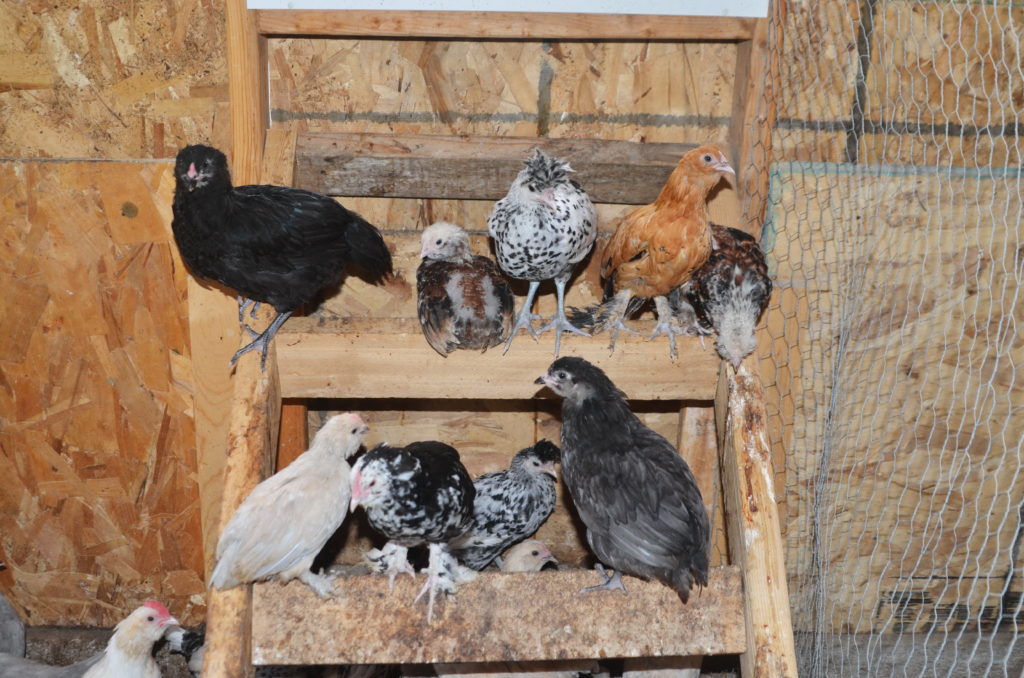
Young growers resting in their new chicken house.
Prevention is always best, and there are several good things you can do, to keep the impact of coccidiosis low or maybe even avoid it altogether. First most basic, feed medicated feed and practice good animal husbandry by keeping food and water dishes clean, dumping out any leftover feed that becomes infiltrated with chick droppings. Continue with medicated feed for up to 4 months of age because consumption of medicated feed helps prevent coccidiosis and builds immunity to the disease at the same time. It is critical to keep their pens clean and dry; the buildup of manure can increase the risk of the illness tenfold. Chickens by nature are peckers, and the more droppings they peck, the more likely their systems will become overloaded with the cocci parasite, increasing the risk for coccidiosis.
Chicks need adequate Living Space
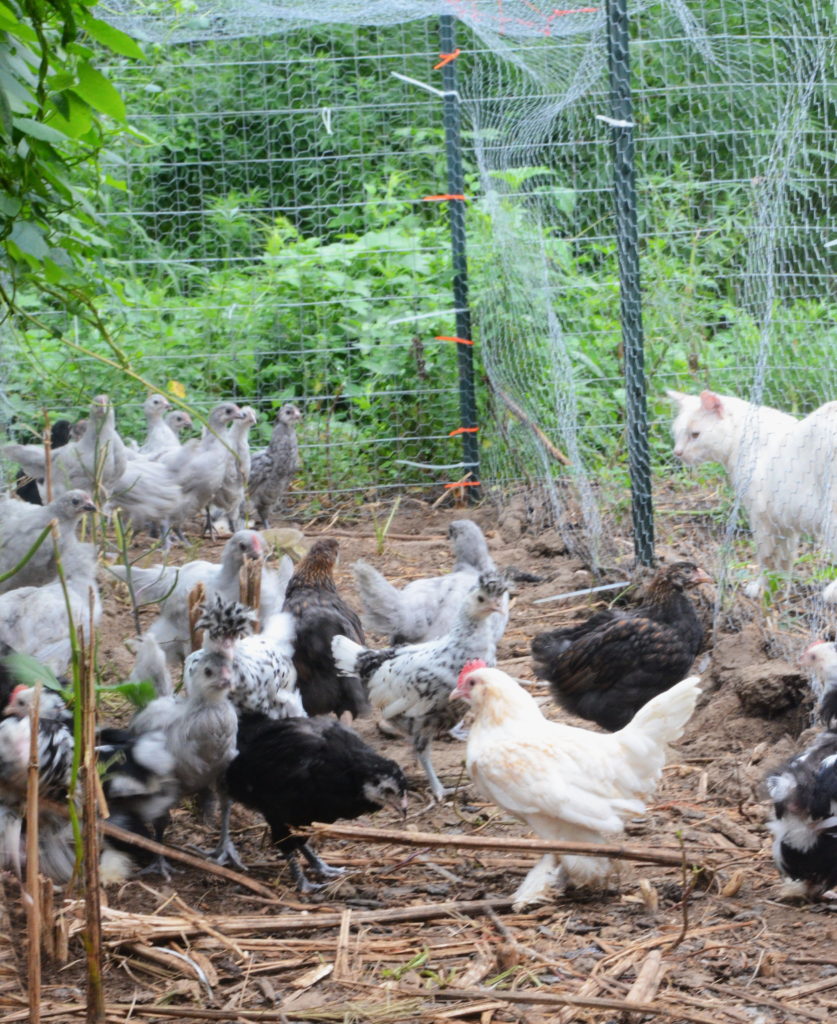
Protect chicks from predators with fenced in run.
Give chicks plenty of room, each chick should have one square foot of living space, for up to 6 weeks of age, and then provide them additional space as they grow. Set up your brooding pens for safe outdoor access, allowing them to exercise and be in the sun; this combination will help build a stronger immune system. Be sure you keep them safe with chicken wire netting over the top of outdoor runs, for protection from predators.
Consider Using Essential Oils
Feeding your chicks essential oils, like oregano, thyme, and rosemary, and cinnamon may give them a leg up in their defense against coccidiosis. Oregano and thyme have anti-parasitic properties, and it encourages water consumption and increased appetite. The poultry industry has been pioneering for years, with the use of essential oils to support chicken health in place of antibiotics, as mentioned in the New York Times and Journal of Animal and Veterinary Advance*.
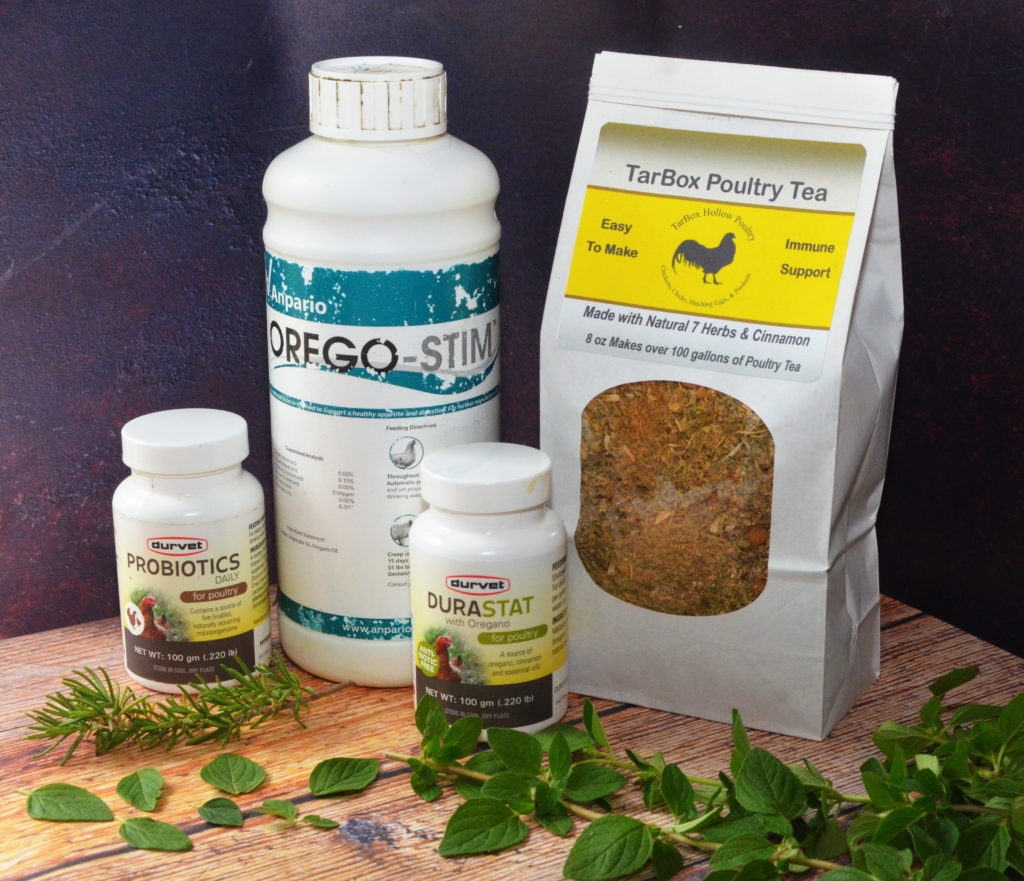
There are various products available made with essential oils, cinnamon, and herbs that support chicken health. 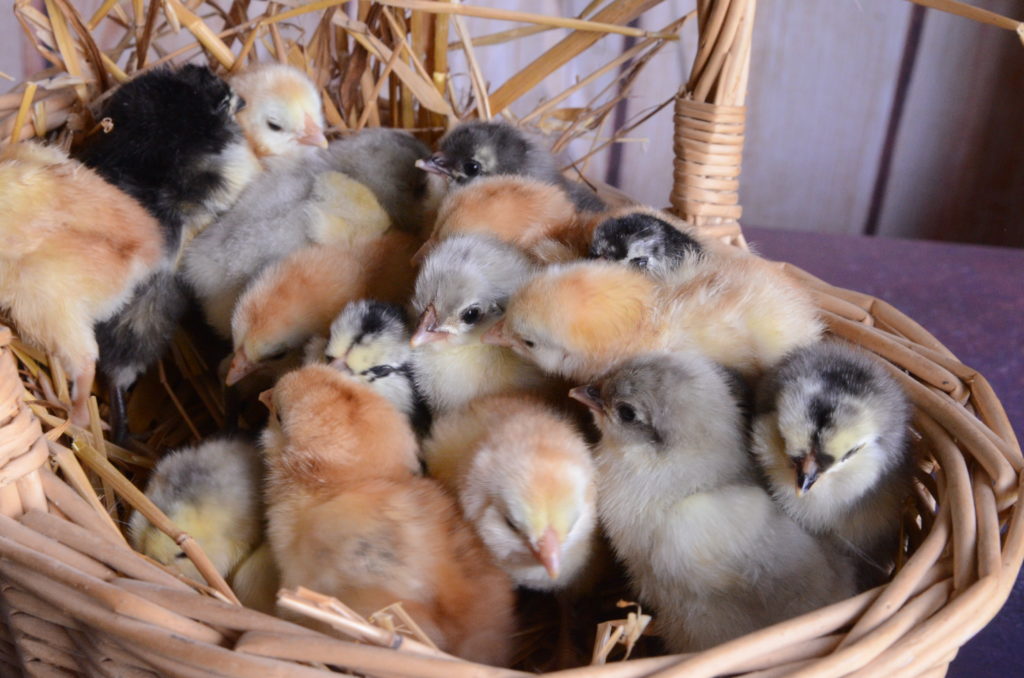
Be Successful in Combatting Coccidiosis
Coccidiosis is a dangerous condition for your chicks, be on guard and always be on the lookout for chicks that appear to be droopy or ill and seek immediate treatment. Prevention will always be your best friend. Be proactive, with good animal husbandry keeping pens, feed troughs, and water containers clean. Allowing chicks to have plenty of room with access to outdoors will encourage vitality and health. Feed medicated feeds, probiotics, vitamins, and electrolytes and consider essential oils to give them that extra line of defense.
To hear more from Valerie Boese on cooking, keeping chickens, and gardening ideas follow these links:
Slice of Taste Pinterest FaceBook Grit Twitter TarBox Hollow Poultry
*https://www.nytimes.com/2012/12/26/science/chicken-farms-try-oregano-as-antibiotic-substitute.html
*http://docsdrive.com/pdfs/medwelljournals/javaa/2010/2295-2304.pdf










